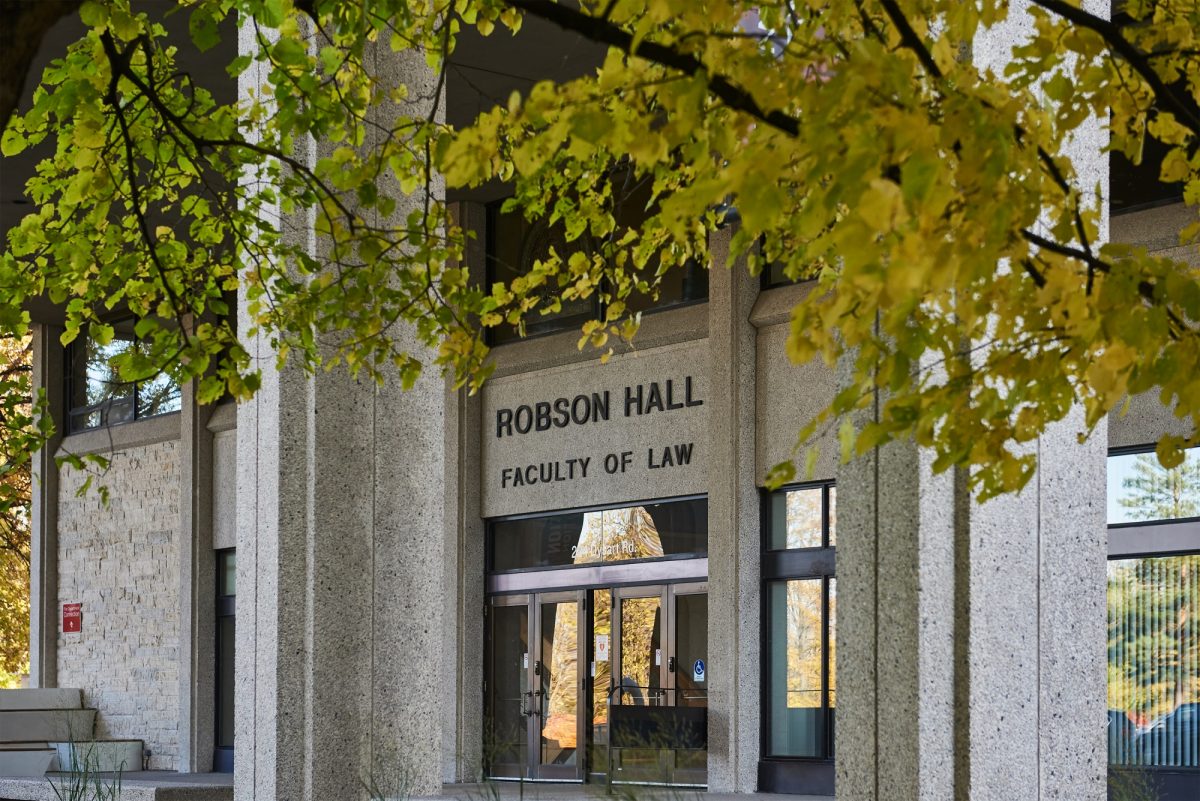
Enduring throughout adversity
Western Canada’s oldest law school perseveres during pandemic
In 1914, the same year the world went to war, the Manitoba Law School was established by forward-thinking, concerned advocates in Hugh Amos Robson and Esten Kenneth Williams who made the education of future lawyers their top priority. Since then, the Faculty of Law at the University of Manitoba has continued to build on this rich tradition of teaching and research excellence with an emphasis on professional practice and advocacy.
It could be argued that traumatic events like the current COVID-19 (coronavirus) pandemic are not “unprecedented” in our law school’s long history, because this faculty endured throughout the first world war, the Spanish Flu of 1918, the second world war, the polio epidemic of the 1950s, and many other wide-spread hardships affecting Canadians. While the current terrible circumstances should not be downplayed, it is encouraging to note that this faculty community has always found a way to carry on, and continues to do so.
Most inspiring is the story of the late Art Braid, C.M., Q.C., alumnus, former professor, dean and senior scholar who survived polio as a young person to go on to have an illustrious and vibrant legal career until his death on February 27th of this year. Dr. Bryan Schwartz remembered Art in a eulogy, kindly shared earlier this year in UM Today. Prior to his death, Art had given a lengthy and intriguing interview about his experiences as a law student and professor published in the Manitoba Law Journal’s special edition on The Great Transition in Legal Education.
True to the faculty’s tradition of finding a way to carry on, the Class of 2020 will indeed be graduating, and all three years of law school did see their winter term through to the bitter end. Over 300 law students completed their exams and assignments this spring, despite the entire University of Manitoba Fort Garry Campus being closed to all but essential traffic. Please read about how we achieved this feat in the UM Today story, “Getting through Law School exams during a pandemic: A rough guide”.
Up until the end of March, an astonishing number of achievements were completed within the law faculty community. Some highlights of this past year that law alumni were involved with include:
Homecoming 2019 – Robson Hall’s 50th Anniversary: Please take a virtual visit on our website (Time Capsule Contents drop-down) and read about the event in the UM Today Law News Network.
Guest Speakers: Many alumni and members of the practicing bar return year after year to share knowledge and experience as guest speakers invited by both professors and students.
Moots & Competitions: Fillmore Riley always kicks off Moot season by hosting the fall Negotiation Competition, which involves many of the faculty’s sessional instructors and alumni. This winter, overwhelming support came from the family law bar that collaborated to present the inaugural Western Canada Family Law Negotiation Competition. Members of the Indigenous legal community also worked tirelessly to organize the national Kawaskimhon Moot at Robson Hall. Many alumni volunteer each year to coach law students on the Moot teams that represent Robson Hall across Canada. This year, the trial moot series team of Alyssa Cloutier and Keith McCullough brought home the MacIntyre Cup and went on to place second in the national Sopinka Cup.
Hosting Student/Firm Networking Events: Through Robson Hall’s Career Development Office, many local firms, large, mid-sized and small, have generously hosted events to facilitate networking between students and practicing lawyers. Throughout the pandemic, Career Development Officer, Lisa Griffin, worked tirelessly to ensure students had jobs and helped guide them through the articling and PREP/CPLED process in this era of new Law Society guidelines.
Hiring Articling Students: Mentoring students extends beyond the classroom, and as law students go out into the world with freshly-minted Juris Doctor degrees, their futures are in the hands of the practicing legal community and those of our alumni to take chances on them and train them in the profession.
Going forward, we will continue training leaders of what is at the moment, an uncertain and unpredictable future, but given our past track record, we are confident that together, we will find ways to carry on.






